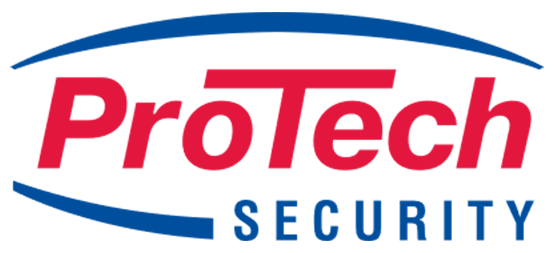When most business owners and managers think of corporate security services, intrusion detection is one of the first things that comes to mind. While intrusion detection systems are vital for safeguarding assets, personnel, and even your data, there are ways to bolster your overall security to take care of the things that are often overlooked.
For instance, by integrating more sensors with your monitored intrusion systems, you can protect your business from disasters that many forget to plan for, such as water damage, temperature fluctuations in areas with sensitive equipment, and fire.
Water Detection Systems
According to Chubb, the world’s largest publicly traded P&C insurance company, major water leaks have been known to cost businesses up to $6.5 million USD. Not only can a water leak damage building infrastructure and expensive equipment, but it can also lead to significant operational downtime and expensive workarounds. And it doesn’t take much. In fact, a standard ½” pipe that breaks can release 50 gallons of water per minute—that’s more than 10,000 gallons of water in just a few hours. Even a small leak in something like a refrigerator waterline can release 700-1,400 gallons of water in a few hours.
Added to typical corporate security services, water detection systems are designed to identify and issue alerts for the presence of water or moisture in areas where it shouldn’t be. This is particularly invaluable in places like server rooms, data centers, and other critical infrastructure spaces. Water detection systems can also be put into place in warehouse storage spaces; basements, kitchens, and bathrooms in office buildings; libraries, computer labs, and administrative rooms in schools; and in and around HVAC systems, elevators, and mechanical rooms in virtually all buildings.
Water detection systems consist of a combination of sensors and alarms that work together to alert you to potential leaks. Different types of sensors include:
- Point sensors — Individual sensors placed in specific locations prone to leaks that trigger an alert when they come into contact with water.
- Moisture sensors — Continuously monitor moisture levels in an area. These release an alert if moisture levels increase suddenly.
- Conductive sensors — Use conductivity to detect water. When water comes into contact with these, they close a circuit and trigger an alert.
- Capacitance sensors — Measures capacitance caused by water. An increase in capacitance indicates moisture.
Water detection systems can be integrated with a wider building management system (BMS) to allow for centralized monitoring and control.
Temperature Controls in Corporate Security Services
If your business relies on on-site use of technological equipment (as most modern businesses do), then it’s highly advisable to layer temperature sensors and monitoring systems over your standard corporate security services.
Temperature is one of the most important factors that impact the performance of technological equipment, including business-critical equipment like servers. The American Society of Heating, Refrigeration, and Air-Conditioning Engineers (ASHRAE) states that temperatures in places like data center environments should generally be kept between 64℉ and 81℉. A fluctuation of too high or too low can lead to operational problems and significant unplanned downtime.
However, temperature monitoring as part of corporate security services is also valuable in other sectors. Storage facilities that contain temperature-sensitive goods (such as food and beverage distribution centers or pharmaceutical warehouses) benefit greatly from temperature monitoring. Temperature sensors are also useful in schools to safeguard computer labs; manufacturing plants that utilize cleanrooms; and retail spaces for maintaining the quality of food, clothing, and electronics.
Like water detection systems, temperature control systems are designed to monitor thermal conditions to ensure they remain at optimal levels. They also rely on a series of sensors and alarms. But, unlike water detection, regulation mechanisms (i.e. heating and cooling systems) can also be included to keep temperatures in check.
Sensors that are often part of temperature control systems include:
- Thermocouples — Measure temperature by detecting changes in voltage across two different metals. They are commonly used for a wide temperature range.
- RTDs (Resistance Temperature Detectors) — Measure temperatures based on the change in electrical resistance of a metal (usually platinum).
- Infrared sensors — Detect temperature by measuring the thermal radiation emitted by an object.
Temperature monitoring systems can also be integrated with a wider BMS to allow for centralized surveillance and control across different zones within a facility.
The Insurance Benefits of Enhanced Corporate Security Services
Integrating sensors into your corporate security services doesn’t only enhance risk management and operational resilience; taking these measures can also help improve your organization’s standing with insurance providers. Because insurance providers often assess the risk profile of an organization when determining coverage and premiums, enhanced security measures can demonstrate due diligence that may lead to lower premiums and personalized coverage.
The data gathered from systems like water and temperature monitoring systems can also help support your organization’s insurance claims. Having documented proof that your organization took the necessary precautions to minimize damage are invaluable in liability assessments and negotiations with insurance providers.
Let ProTech Security Enhance your existing system
No matter the nature of your organization or business, integrating sensors into your corporate security services is essential for improving operational resiliency and minimizing costly unplanned downtimes. This is the case whether you work in close proximity with data centers and server rooms, or just need additional protection for elevators and mechanical rooms.
At ProTech Security, we deliver custom-designed security solutions to bring peace of mind to businesses across a variety of sectors. With decades of experience in the industry, we bring security solutions backed by the latest technology to our clients in Ohio and central Florida. To learn more about how we can integrate sensors into your security services for a more holistic approach, contact our team today.



